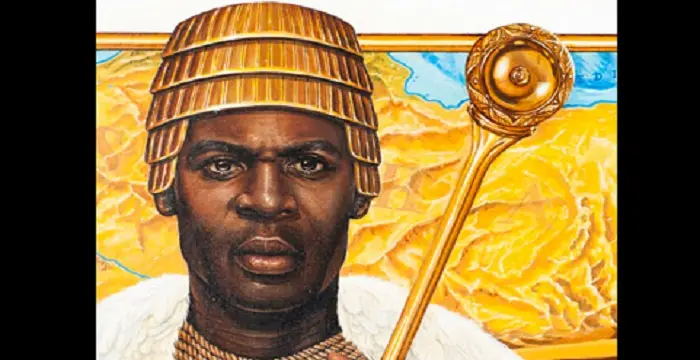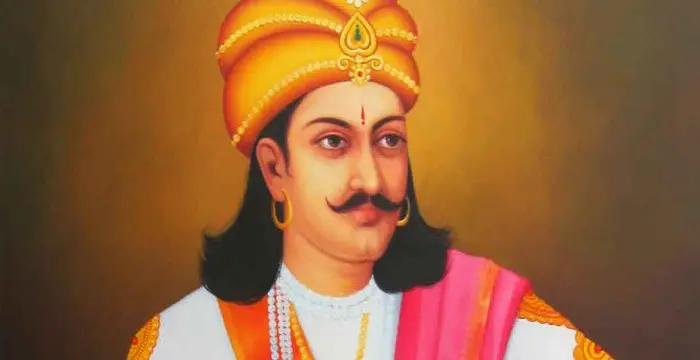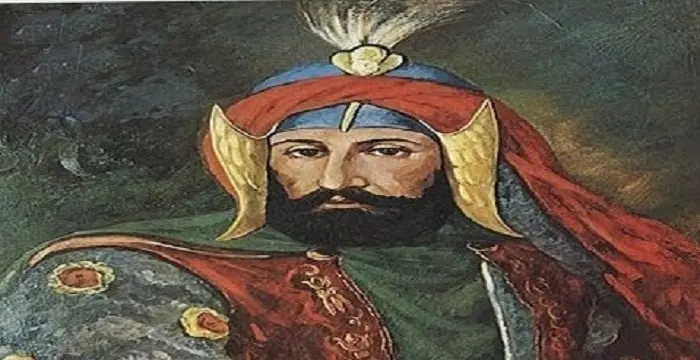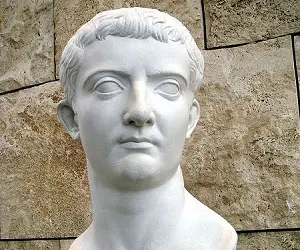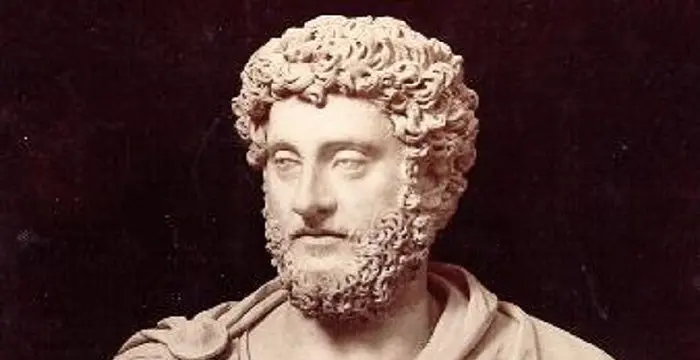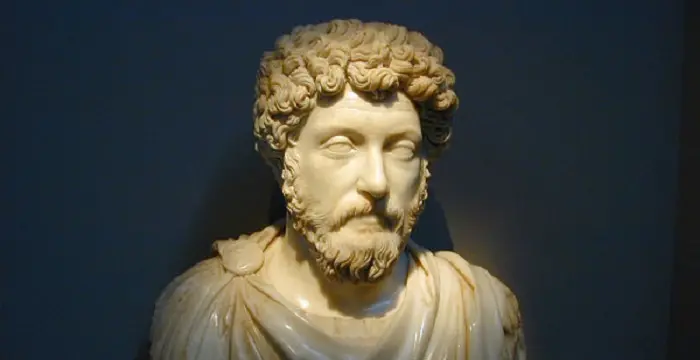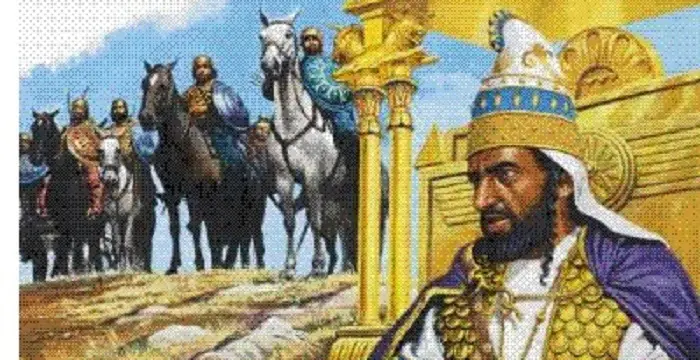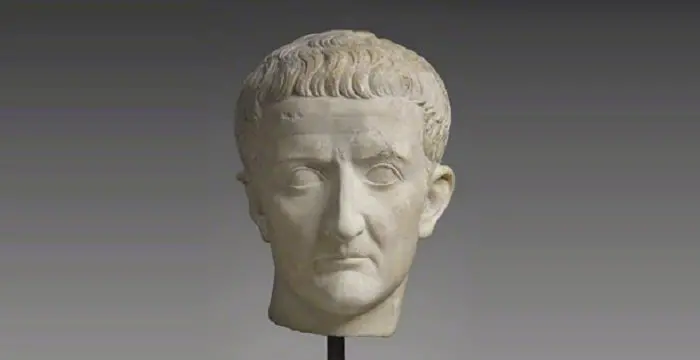
Tiberius - Kings, Timeline and Family
Tiberius's Personal Details
Tiberius was a Roman emperor who ruled for 23 years and was also an accomplished military leader
| Information | Detail |
|---|---|
| Died on | March 16, 2037 |
| Nationality | Ancient Roman |
| Famous | Historical Personalities, Emperors & Kings, Leaders, Emperors, Kings, Roman Emperor |
| Spouses | Julia the Elder (m. 11 BC), Vipsania Agrippina (m. 19 BC) |
| Known as | Tiberius Claudius Nero |
| Childrens | Germanicus, Julius Caesar Drusus |
| Birth Place | Rome, Italy |
| Gender | Male |
| Father | Tiberius Claudius Nero |
| Mother | Livia Drusilla |
| Sun Sign | Scorpio |
| Born in | Rome, Italy |
| Famous as | Roman Emperor |
| Died at Age | 78 |
// Famous Emperors
Sundiata Keita
Sundiata Keita was the founder of the Mali Empire in West Africa. This biography profiles his childhood, early life, struggles, founding of empire, rule, administration, achievements and also gives some fun facts.
Ashoka
Ashoka was the third emperor of the Mauryan Dynasty and ruled almost the entire Indian subcontinent. This biography profiles his childhood, life, reign, achievements and timeline
Murad IV
Murad IV was one of the mighty Sultans in the history of the Ottoman Empire. This biography profiles his childhood, family, accession, rule, administration and timeline.
Tiberius's photo
Who is Tiberius?
Tiberius was a long-serving Roman Emperor who was also known for his military achievements. Born to an aristocratic household, he was fourth in line to the throne and was entrusted with considerable responsibilities from a very young age. Initially assigned to administrative affairs, Tiberius soon developed into a formidable military leader. He commanded a series of successful campaigns in various parts of Europe and outside, and held important administrative positions in between the military campaigns. Even with all the success, he was never happy mainly due to the estrangement from his first wife Vipsania. At the height of his power, he shocked everyone by retiring to Rhodes, forsaking all his responsibilities. But the untimely deaths of the heirs to the throne, resulted in not only Tiberius’ return to Rome, but also his return to the positions of power which he had never held before. His subsequent rule was marked by indecision and indifference on his part, and made him unpopular with the masses. Just like before, he again started shirking his responsibilities and left Rome again, leaving his trusted ally Sejanus in charge. He still had considerable powers and wielded them to execute Sejanus and his associates on the charges of treason. Tiberius might not have been the best Roman emperor, but he fared far better than his successors, who plunged Rome into anarchy and decadence.
// Famous Kings
Sundiata Keita
Sundiata Keita was the founder of the Mali Empire in West Africa. This biography profiles his childhood, early life, struggles, founding of empire, rule, administration, achievements and also gives some fun facts.
Ashoka
Ashoka was the third emperor of the Mauryan Dynasty and ruled almost the entire Indian subcontinent. This biography profiles his childhood, life, reign, achievements and timeline
Murad IV
Murad IV was one of the mighty Sultans in the history of the Ottoman Empire. This biography profiles his childhood, family, accession, rule, administration and timeline.
Childhood & Early Life
Tiberius was born on 16 November 42 BC, to politician Tiberius Claudius Nero and Livia Drusilla in Rome. His parents divorced in 39 BC and his mother then married the emperor Gaius Julius Caesar Octavianus.
At the age of twelve, he rode in a chariot with his father Octavian to celebrate the victory over Antony and Cleopatra at Actium.
In 24 BC, under the emperor Augustus, seventeen-year-old Tiberius was appointed as a ‘quaestor’, a public official for financial affairs.
He operated as a public prosecutor and successfully convicted Fannius Caepio and Varro Murena of high treason. He was also involved in other administrative affairs like regulating grain supply and inspecting slave barracks.
In his first military campaign, he led forces to Armenia and crowned Tigranes as the emperor and also accompanied Augustus to free Roman standards from the Parthians.
On his return from the east, he was appointed a ‘praetor’, an army commander. Next, he was sent to subdue the Gauls. He returned to Rome in 19 BC and was granted the position of consul.
He was commissioned to fight battles in Germany in 12 BC. He captured about 40,000 prisoners and then relocated them to Gaul.
He returned to Rome in 7 BC and again served as the ‘Consul’. The next year, he was bestowed the ‘tribunician power’, which substantially increased his influence.
In 6 BC, Tiberius and general Gaius Sentius Saturninus successfully invaded the Germanic tribe of ‘Marcomanni’ through two-pronged attacks.
In 2 AD, Tiberius returned from a self-imposed exile in Rhodes, without the powers he held before. However, he was reinstated to his authority after two years following the death of Augustus’ grandson Gaius in Armenia. Augustus also adopted Tiberius as his full son and heir.
In 12 AD, he was conferred the administrative powers equalling those of the emperor. Two years later, Augustus died and Tiberius, as his heir, became the sole ruler.
Accession & Reign
The initial years of reign were difficult for Tiberius as the Senate did not trust him. He tried to project himself as a reluctant and unselfish ruler, but this did more harm than good to his reputation.
He carried out several reforms during this period. He controlled excesses, disallowed Egyptian and Jewish cults, banished astrologers, subdued riots and removed the right of sanctuary.
Soon after his ascendency, two northern legions in ‘Pannonia’ and Germania began mutinies. Tiberius sent his nephew Germanicus, whom he had also adopted, to suppress the revolts. Germanicus combined forces with the rebels and made further conquests in Germania.
Post Germanicus’ triumphs, Tiberius gave him control of the eastern provinces. But in 19 AD, Germanicus died from poisoning under mysterious circumstances.
In the following years, Tiberius vested many powers in the long-serving Praetorian Prefect, Sejanus, and his own involvement in matters of state kept reducing, due to his indifference. He did not perform his civic duties and went on long excursions annually. Finally, he left Rome and moved to Capri in 26 AD, leaving Sejanus as the sole ruler.
Sejanus’s quest for more power led him to conspire to overthrow Tiberius and ruthlessly execute his competitors. Upon getting abreast with Sejanus’s doings, Tiberius, from Capri, arranged for his execution in 31 AD. He also punished everyone who was associated with Sejanus.
In his will, Tiberius declared both Caligula, his adopted grandson and Tiberius Gemellus, his biological grandson as heirs.
Major Battles
Before his accession, Tiberius led an army into Armenia to convert it to a Roman client-state, and hence end the threats at the borders. He was able to forge a compromise by which, the standards were returned to the Romans and Armenis was allowed to remain as a free state. He personally oversaw the crowning of King Tigranes.
In a campaign in Germany in 12 BC, Tiberius came out victorious and took about 40,000 prisoners. He then released these prisoners and relocated them to new lands in Gaul.
He annexed Marcomanni by allying with general Gaius Sentius Saturninus. While Tiberius attacked from the east, General Gaius attacked from the west. The Romans won the battle easily. But before Tiberius could subjugate the Marcomanni, he was called to Germania.
Personal Life & Legacy
Tiberius married Vipsania Agrippina, the daughter of Augustus’s close friend, General Marcus Vipsanius Agrippa. He had one son from this marriage, ‘Drusus Julius Caesar’. Agrippa died in 12 BC and the following year, Augustus forced Tiberius to divorce Vipsania and marry Agrippa’s widow, Julia.
Tiberius was deeply unhappy with his second marriage as he still pined for Vipsania and his misery was compounded by Julia’s flagrant and licentious behaviour. The marriage finally ended in 2 BC with Julia’s exile.
After his accession as the emperor, his reign was unstable as he was indecisive. His instructions were not clear and he was neither popular with the Senate, nor with the people. His son’s untimely death in 23 AD made him even more withdrawn.
In 37 AD, he contacted an illness while travelling in Campania and was taken to Misenum for treatment, but died there on 16 March 37 AD, at the age of 78.
Trivia
This Roman Emperor was a powerful yet reluctant ruler, who twice went on self-imposed exiles, abandoning all his powers in search for solitude.
// Famous Roman Emperor
Commodus
Commodus (Lucius Aurelius Commodus) was a Roman emperor during the early years of the first millennium. This biography provides detailed information about his childhood, family, rule, life history, achievements, death etc.
Marcus Aurelius
Marcus Aurelius was one of the most cherished Roman emperors in history. Go through this article to learn more about his profile, childhood, life and timeline.
Constantine the Great
Constantine the Great was a Roman Emperor of Illyrian ancestry who ruled from 306 to 337 AD. This biography of Constantine the Great provides detailed information about his childhood, life, achievements, works & timeline
Tiberius biography timelines
- // 16th Nov 42 BCTiberius was born on 16 November 42 BC, to politician Tiberius Claudius Nero and Livia Drusilla in Rome. His parents divorced in 39 BC and his mother then married the emperor Gaius Julius Caesar Octavianus.
- // 24 BCIn 24 BC, under the emperor Augustus, seventeen-year-old Tiberius was appointed as a ‘quaestor’, a public official for financial affairs.
- // 19 BCOn his return from the east, he was appointed a ‘praetor’, an army commander. Next, he was sent to subdue the Gauls. He returned to Rome in 19 BC and was granted the position of consul.
- // 12 BCHe was commissioned to fight battles in Germany in 12 BC. He captured about 40,000 prisoners and then relocated them to Gaul.
- // 7 BCHe returned to Rome in 7 BC and again served as the ‘Consul’. The next year, he was bestowed the ‘tribunician power’, which substantially increased his influence.
- // 6 BCIn 6 BC, Tiberius and general Gaius Sentius Saturninus successfully invaded the Germanic tribe of ‘Marcomanni’ through two-pronged attacks.
- // 2In 2 AD, Tiberius returned from a self-imposed exile in Rhodes, without the powers he held before. However, he was reinstated to his authority after two years following the death of Augustus’ grandson Gaius in Armenia. Augustus also adopted Tiberius as his full son and heir.
- // 12In 12 AD, he was conferred the administrative powers equalling those of the emperor. Two years later, Augustus died and Tiberius, as his heir, became the sole ruler.
- // 19Post Germanicus’ triumphs, Tiberius gave him control of the eastern provinces. But in 19 AD, Germanicus died from poisoning under mysterious circumstances.
- // 26In the following years, Tiberius vested many powers in the long-serving Praetorian Prefect, Sejanus, and his own involvement in matters of state kept reducing, due to his indifference. He did not perform his civic duties and went on long excursions annually. Finally, he left Rome and moved to Capri in 26 AD, leaving Sejanus as the sole ruler.
- // 31Sejanus’s quest for more power led him to conspire to overthrow Tiberius and ruthlessly execute his competitors. Upon getting abreast with Sejanus’s doings, Tiberius, from Capri, arranged for his execution in 31 AD. He also punished everyone who was associated with Sejanus.
- // 16th Mar 37In 37 AD, he contacted an illness while travelling in Campania and was taken to Misenum for treatment, but died there on 16 March 37 AD, at the age of 78.
// Famous Emperors & Kings
Sundiata Keita
Sundiata Keita was the founder of the Mali Empire in West Africa. This biography profiles his childhood, early life, struggles, founding of empire, rule, administration, achievements and also gives some fun facts.
Ashoka
Ashoka was the third emperor of the Mauryan Dynasty and ruled almost the entire Indian subcontinent. This biography profiles his childhood, life, reign, achievements and timeline
Murad IV
Murad IV was one of the mighty Sultans in the history of the Ottoman Empire. This biography profiles his childhood, family, accession, rule, administration and timeline.
Xerxes I
Xerxes I (Xerxes the Great) was the fourth and the most famous king of the Archaemenid dynasty of Persia. This biography profiles his childhood, family, personal life, life history, achievements, campaigns, administration, death and other facts.
Sargon of Akkad
Sargon of Akkad, also called ‘Sargon the Great’, ‘Sarru-Kan’ and ‘Shar-Gani-Sharri’, was the founder and first king of the Akkadian Empire. This biography profiles his childhood, life, rule, administration, timeline, and gives some fun facts.
Abdullah of Saudi Arabia
Abdullah bin Abdulaziz Al Saud was the King of Saudi Arabia from 2005 to 2015 and the third wealthiest head of state in the world. Find more facts about his life, childhood and timeline.
Tiberius's FAQ
What is Tiberius birthday?
Tiberius was born at 2020-04-12
When was Tiberius died?
Tiberius was died at 2037-03-16
Where was Tiberius died?
Tiberius was died in Misenum
Which age was Tiberius died?
Tiberius was died at age 78
Where is Tiberius's birth place?
Tiberius was born in Rome, Italy
What is Tiberius nationalities?
Tiberius's nationalities is Ancient Roman
Who is Tiberius spouses?
Tiberius's spouses is Julia the Elder (m. 11 BC), Vipsania Agrippina (m. 19 BC)
Who is Tiberius childrens?
Tiberius's childrens is Germanicus, Julius Caesar Drusus
Who is Tiberius's father?
Tiberius's father is Tiberius Claudius Nero
Who is Tiberius's mother?
Tiberius's mother is Livia Drusilla
What is Tiberius's sun sign?
Tiberius is Scorpio
How famous is Tiberius?
Tiberius is famouse as Roman Emperor
